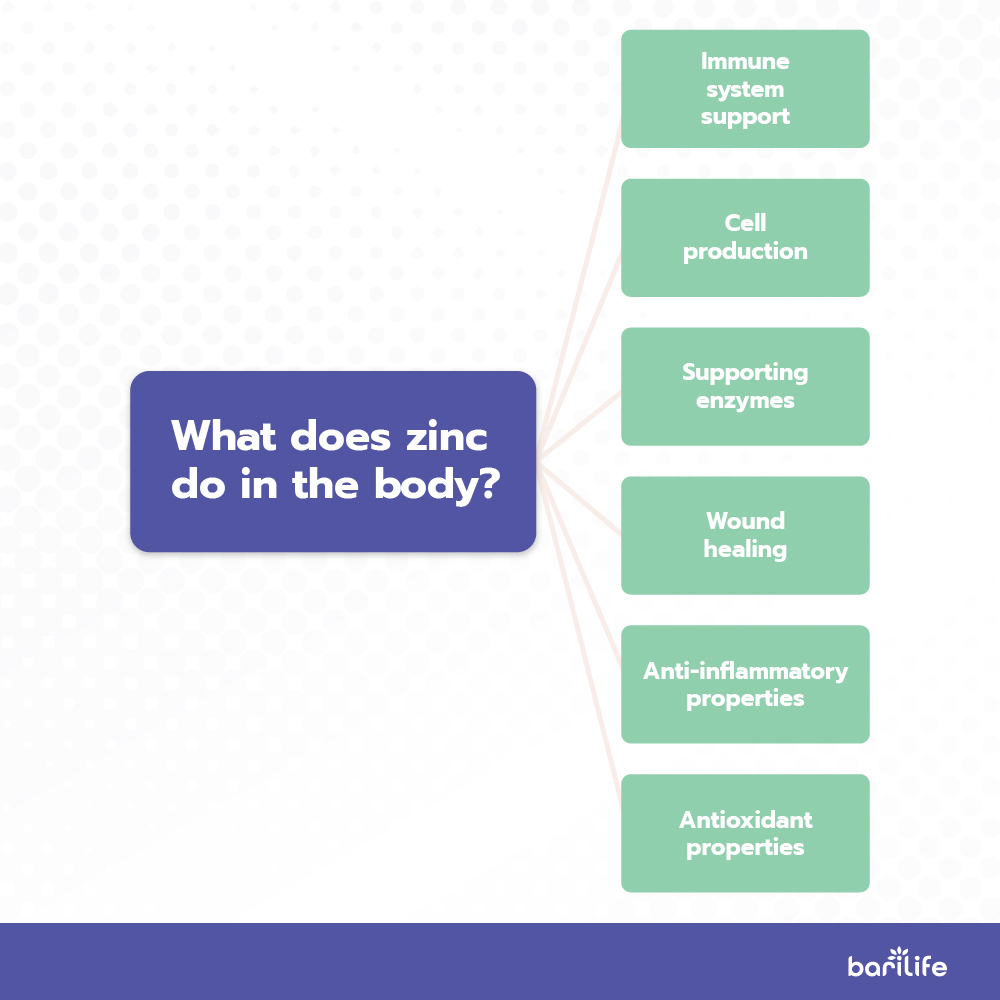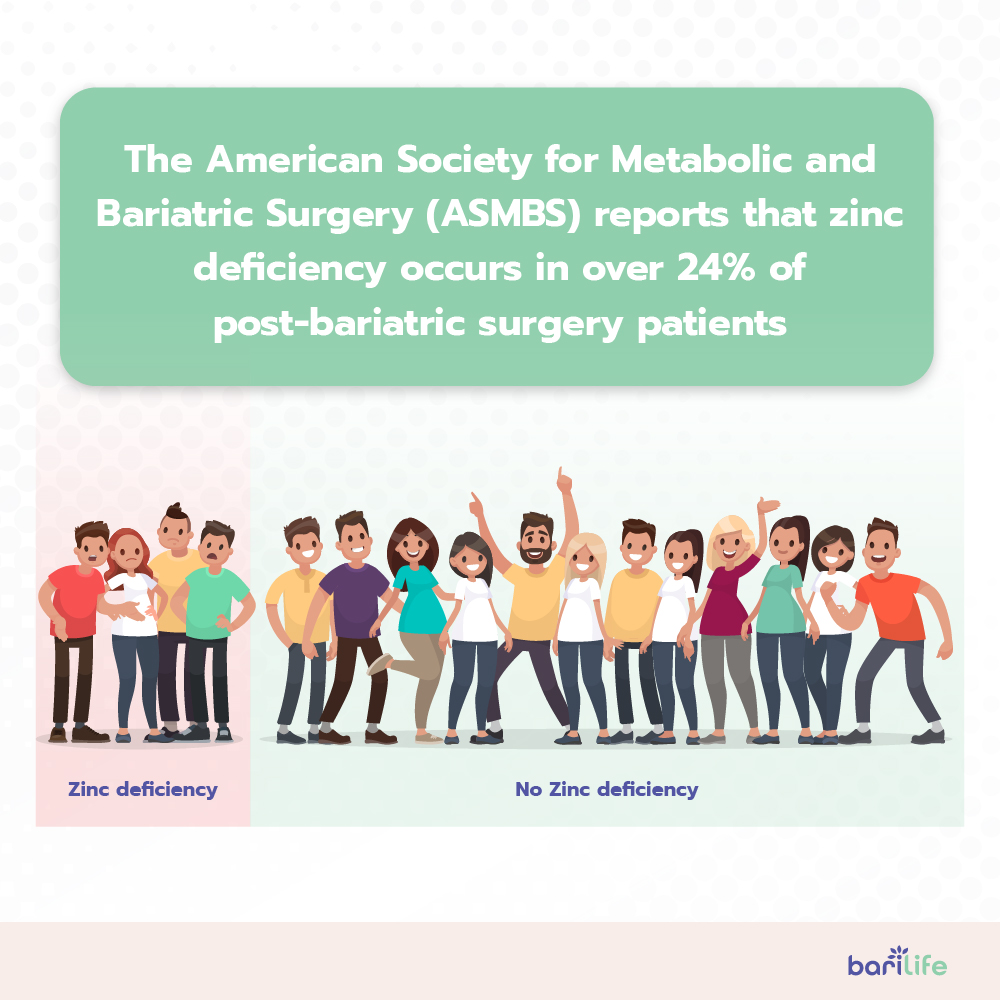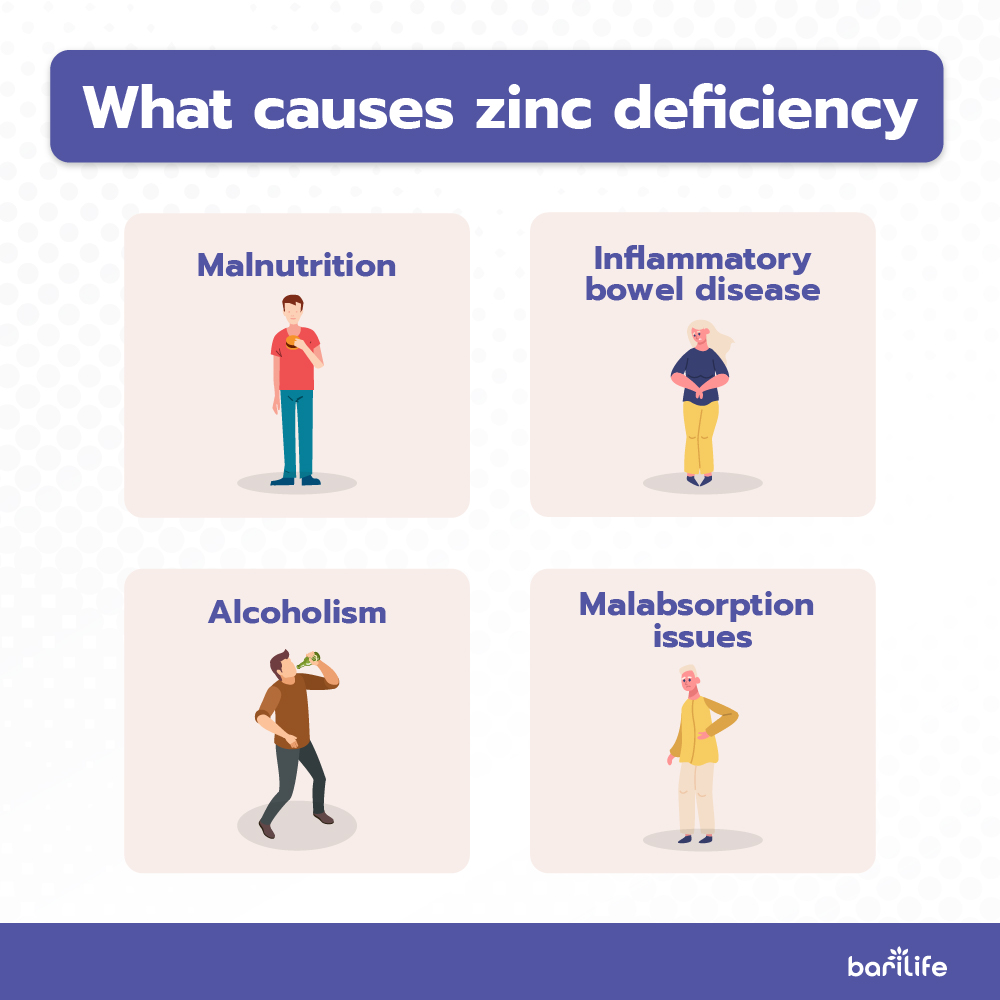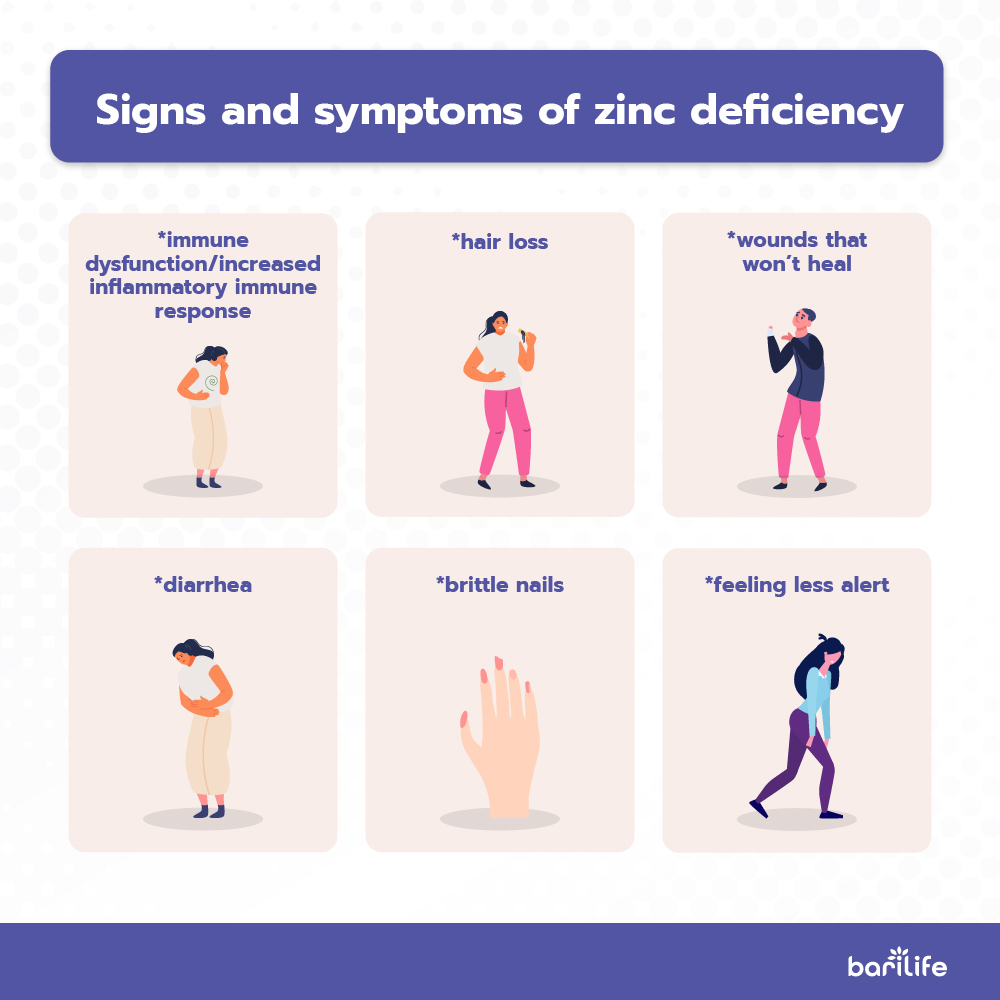Bariatric surgery is a great long-term option for weight loss. But even with the positive changes from surgery, it can also cause nutritional deficiencies after surgery. It’s essential to know the changes that occur within the body in order to understand how to maintain your health long after your bariatric surgery is performed.
Zinc deficiency after bariatric surgery is one complication that can develop. This occurs because of a reduction in food intake and absorption in the digestive tract. Additionally, zinc stores do not exist within the body, making supplementation essential. The easiest way to correct this is by taking a daily post-bariatric-specific multivitamin.
The Role of Zinc in the Body
Zinc is an essential micronutrient for the body’s immune system. It also plays a role in cell production, supporting enzymes, and wound healing. Along with that, it also has both anti-inflammatory and antioxidant properties. Needless to say, zinc plays an important role in your well-being.

Zinc is naturally found in meat or animal product intake, but can also be found in some fortified foods. Traditionally, zinc deficiency is not common for people eating a well-rounded diet but deficiency can still occur in some individuals. Zinc deficiency after bariatric surgery is significantly more common because of decreased food intake and physical changes to the digestive tract.
Daily Guidelines for Zinc
The American Society for Metabolic and Bariatric Surgery (ASMBS) reports that zinc deficiency occurs in over 24% of post-bariatric surgery patients. Many times, this is due to poor intake and lack of supplementation. But with consistent supplementation designed for post-bariatric surgery patients, you ensure you’re getting enough zinc each day.

According to the National Institutes of Health, the recommended daily value of zinc is 8-11 grams. A multivitamin containing at least 11 grams of zinc is recommended, with a goal of taking between 100 and 200% of the recommended daily value.
Each of Bari Life’s Complete Bariatric Multivitamin Tablets meets or exceeds the NIH guidelines. There is 30 mg of zinc in each product. Check them out here.
Causes of Zinc Deficiency
Found in a variety of meat and animal products, zinc deficiency is uncommon in most individuals eating a balanced diet. But after bariatric surgery, zinc deficiency is more common.
Some causes of zinc deficiency can include:
- Malnutrition
- Inflammatory bowel disease
- Alcoholism
- Malabsorption issues, such as after bariatric surgery

With less food intake and changes in absorption after bariatric surgery, zinc deficiency is well-documented. This makes supplementation essential.
Looking for an all-in-one multivitamin that gives you all the vitamins and minerals you need after surgery? Bari Life’s Complete Bariatric Multivitamin Tablets have everything you need.
Symptoms of Zinc Deficiency
Zinc deficiency after bariatric surgery can cause a variety of symptoms, including:
- Immune dysfunction
- Increased inflammatory immune responses
- Weight loss and growth retardation
- Hair loss
- Diarrhea
- Brittle nails
- Wounds that won’t heal
- Feeling less alert

If you begin to notice any of these symptoms, let your healthcare provider know.
Since you have a unique set of needs and nutrient requirements after surgery, choose a multivitamin that’s made for you. Simplify your multivitamin regimen and choose Complete Bariatric Multivitamin Tablets by Bari Life.
Complications of Zinc Deficiency After Bariatric Surgery
If left untreated, zinc deficiency can lead to serious consequences. Because of its significant role in immune function, recurrent infections can occur. Cognitive impairment has also been documented in cases with severe, long-term zinc deficiency.
Zinc deficiency can also:
- Impair cell division and growth
- Create diabetic complications
- Increase oxidative stress within the body
As you can see, zinc plays an essential role in the body. If you can’t take in enough zinc through food alone, as is the case for most people after bariatric surgery, zinc supplementation is required.
Multivitamins For Zinc Deficiency
To prevent zinc deficiency after bariatric surgery, choose a multivitamin with at least 8-22mg of zinc. This equates to between 100 and 200% of the recommended daily value (DV). With gastrointestinal changes after surgery and a decrease in food intake, zinc deficiency after bariatric surgery is common. But with supplementation, no adverse effects have been reported and it’s well tolerated at recommended doses.
Unfortunately, though, not all multivitamins provide this essential micronutrient. The best way to find the right multivitamin is to get one that’s made specifically for you. Your body has specific needs after surgery and a post-bariatric multivitamin ensures you get all the essential vitamins and minerals you need to prevent zinc deficiency after bariatric surgery.

Bari Life has just what you need. Our Complete Bariatric Multivitamin Tablets include all the guidelines for post-surgical supplementation, including your recommended daily zinc value. No other vitamins are necessary. Check them out here.




What are your tips and tricks to post-bariatric success?